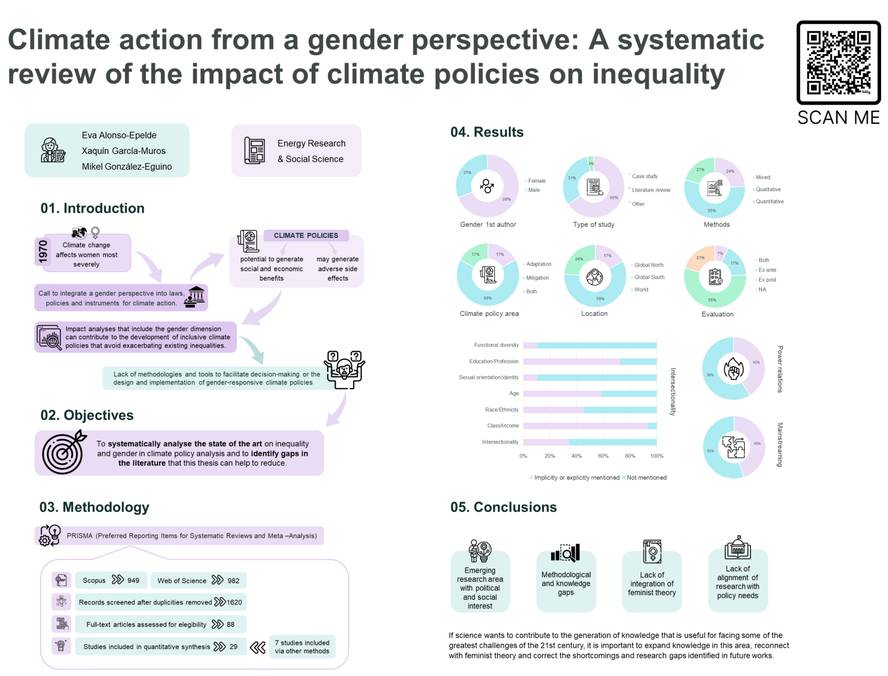Gender mainstreaming is needed in climate policies
A recently published study by researchers from the research center BC3 highlights the importance and urgency of incorporating a gender perspective into climate policies. It is the first systematic review of the literature on the subject, published in the journal Energy Research & Social Science.
The study was conducted by Eva Alonso Epeld, a researcher at BC3. “Women, because of their cultural norms and their dependence on natural resources, are more vulnerable to the adverse effects of climate change; however, there is still a significant gap in research and in the application of gender-sensitive measures,” explains Alonso Epeld.
In climate policies, the gender perspective is a new research area that has recently begun to become interested in the academic field. Currently there are only 29 publications on this topic, most of them published in the last four years. On the other hand, the growing political and social interest reaffirms the need to expand knowledge on the subject.
Mr Epeld also stressed the lack of studies quantifying the extent of the effects of climate policies from a gender perspective, which was directly related to the lack of gender-disaggregated methodologies and data. Likewise, the researcher points out the need to effectively incorporate feminist discourse and the gender perspective in the analysis of gender policies, and the importance of diversifying the scope of studies and not continuing to feed the discourse that revictimizes women from the global South.
“International organizations have been insisting on the need to incorporate a gender perspective into environmental policy since the 1990s. However, the lack of information still hampers this task,” explains Alonso Epeld.
The study concludes the need to develop new methodologies for conducting gender-sensitive quantitative studies and data differentiation based on gender and other social categories in future research. “If science wants to contribute to generate useful knowledge to address some of the great challenges of the 21st century, it is important to expand knowledge in this area, reconnect it with feminist theory and correct the research gaps identified,” emphasizes Alonso Epeld.






